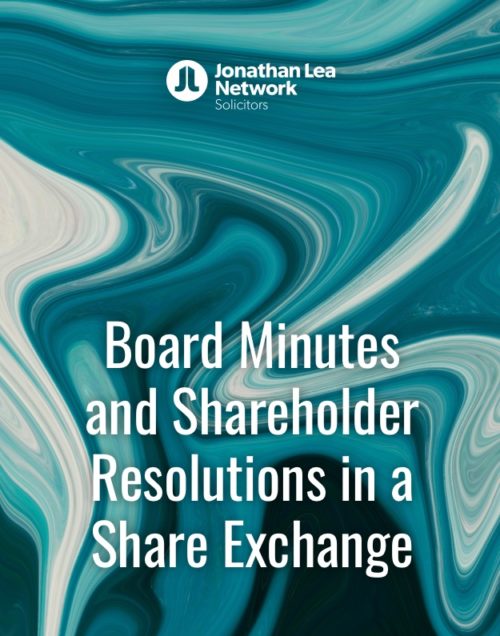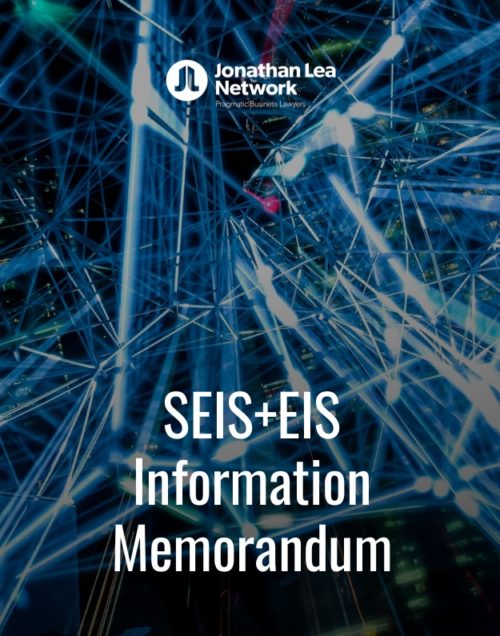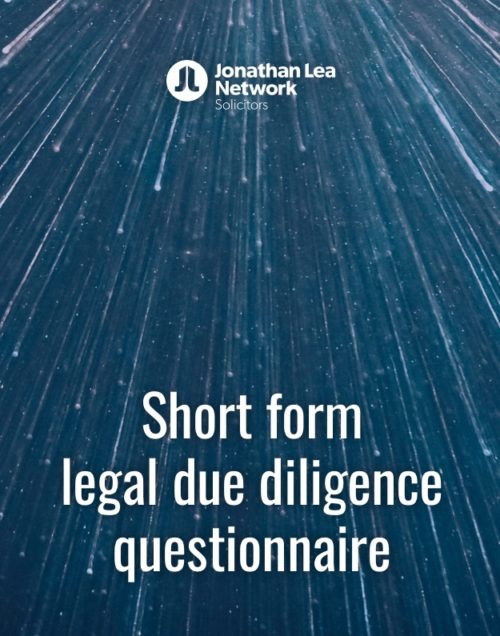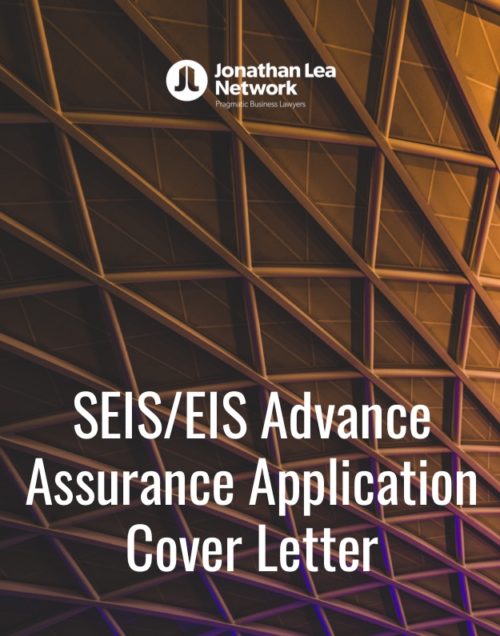Short form share purchase agreement
£21.99
This product constitutes an easily adaptable short form share purchase agreement, together with a set of tailored guidance notes which aim to set out how to correctly fill-out the template and explain all significant provisions so as to allow you to put into effect a valid and legally binding agreement.
Our template contains the usual key provisions contained within share purchase agreements and may be tailored to include any additional provisions having regard to the specifics of a particular transaction, and the aspects of the deal that are of importance or concern to the parties involved. As this document is a simplified, short form agreement, it does not incorporate the full range of buyer-protection provisions that are generally included in a longer form share purchase agreement.
Our template agreement has been drafted on the assumption that the shares being sold and purchased are held in a private limited company, and that both the seller and buyer are private limited, UK registered companies. The agreement can be adapted to fit the scenario where the seller of the sale shares is an individual, who is selling his/her shares either to a company or another individual, or where the seller is a company and the buyer is an individual. Our agreement has also been drafted on the basis of a non-simultaneous exchange and completion, although it can be easily tweaked so that exchange and completion happen simultaneously (as further explained in the guidance notes).
Further down the page are our guidance notes relating to this template which you will also receive as a separate document when you buy the product.
Guide to The Jonathan Lea Network’s Short Form Share Purchase Agreement Template
This guide aims to set out how to correctly fill-out the template and explains all significant provisions so as to allow you to put into effect a valid and legally binding agreement.
Note: As this document is a simplified, short form agreement, it does not incorporate the full range of buyer-protection provisions that are generally included in a longer form share purchase agreement.
This agreement is intended as a template only and must be adapted to the particular circumstances of your case.
Your input is required at the parts of the agreement highlighted in yellow and the wording inside the square brackets which we have included explains clearly the information that should be inserted. You are advised to fill in the wording in square brackets in lower case unless directed otherwise. Any figures should be entered in numerical form. The brackets should be removed after the amendments are made (so as to produce a ‘final form’ version of the agreement).
Our template agreement has been drafted on the assumption that the shares being sold and purchased are held in a private limited company, and that both the seller and buyer are private limited, UK registered companies. The agreement can be adapted to fit the scenario where the seller of the sale shares is an individual, who is selling his/her shares either to a company or another individual, or where the seller is a company and the buyer is an individual.
Our agreement has also been drafted on the basis of a non-simultaneous exchange and completion, given that exchange of contracts will occur once the parties exchange executed versions of the agreement in accordance with clause 14, with completion occurring on the completion date (being the date that the buyer pays the consideration to the seller). Drafting the agreement in this way still means that exchange and completion can happen simultaneously if desired, provided exchange of contracts and payment of the consideration by the buyer to the seller occurs on the same day.
Clause Breakdown
Background
This section of the agreement, sometimes referred to as the recitals, gives a narrative recitation of the background and purpose of the agreement. It can be a useful point to introduce unusual or complicated features of the transaction, which can be defined and then referred to later in the agreement.
Generally, this part of the agreement does not have direct legal consequences. However, where a dispute arises, this section may be used as an interpretative guide to any operative provisions which are subsequently found to be obscure or ambiguous in meaning, or otherwise the subject of dispute.
Clause 1 (Interpretation)
Clause 1.1 sets out the definitions that will apply throughout the agreement – the main purpose for this is to reduce repetition within the body of the agreement, making it shorter and easier to read. In addition, as it gives specific meanings to particular terms used in the agreement, it also both avoids ambiguity and makes it clear that those terms are intended to include matters which they might otherwise be found not to cover (or vice versa). Unless expressly defined, the courts will interpret non-technical terms in accordance with their ordinary and natural meaning, or the meaning which can be inferred by the words that the parties chose to use in the document. Extrinsic expert evidence may be necessary to interpret technical terms not defined in the document itself.
Clauses 1.2 – 1.6 are standard interpretation clauses that are used in most commercial contracts and agreements. As our template is a short form agreement, the interpretation provisions have been kept to a minimum.
Clause 2 (Sale and purchase)
This clause sets out the seller’s obligation to sell, and the buyer’s obligation to purchase, the sale shares. The rights, benefits and title to and in the sale shares are sold under this clause with full title guarantee which implies that the seller has the right to sell the shares and that the sale shares are free from encumbrances.
This clause is the key operative provision in the agreement as it specifies what is being sold, and on what basis.
Clause 3 (Consideration)
This clause deals with the consideration to be paid by the buyer to the seller for the sale shares and details how the consideration is to be paid, and this clause is therefore central to the agreement.
Clause 3.1 confirms that the buyer will pay the consideration in cash in full at completion and that payment of the consideration will be made by electronic transfer of immediately available funds to the seller’s bank account (details of which will be set out in the agreement). Clearly, if a more complex consideration structure is envisaged by the parties, clause 3.1 will need to be amended to reflect this. As drafted, clause 3.1 reflects the simplest approach to the price; a pre-agreed cash sum which is paid in full at completion.
The buyer’s primary obligation under the agreement is to pay the consideration for the sale shares to the seller. Clause 3.1 establishes how and when the buyer must discharge that obligation (i.e. the timing of payment of the consideration). The clause anticipates that the consideration amount is an agreed sum that will be paid in full at completion by a single cash payment (as stated above).
Logistical issues can crop up in discharging this obligation when completion does not take place within normal banking hours, which can often happen in practice. This issue is usually addressed in either of the following ways:
- The buyer transfers the completion monies to the seller’s solicitors in advance of completion, subject to an undertaking from the seller’s solicitors to hold the monies strictly to the buyer’s order pending completion.
- The buyer’s solicitors hold the completion monies at completion, subject to an undertaking to transfer the completion monies to the seller’s solicitors as soon as practicable once completion has taken place.
For the sake of simplicity, we have not drafted this template agreement on the assumption that the consideration will be paid by the buyer to the seller’s solicitors client account before then being passed on to the seller. Our template envisages the buyer paying the consideration directly to the seller’s nominated bank account.
Clause 3.1 also includes the payment mechanics and establishes how the buyer must discharge its cash payment obligations to the seller. Such detail must be included given that the agreement envisages the buyer paying the consideration in cash.
As stated above, it is common in practice for any cash payments due from the buyer to be sent to the seller’s solicitors (often via the buyer’s solicitors), and for the agreement to provide that payment in this manner will be a good and effective discharge of the buyer’s obligation to make the payment. However, we have not drafted this template agreement on that basis and so once the buyer has paid the consideration into the seller’s nominated bank account, clause 3.2 confirms that that shall be a good and valid discharge of the buyer’s obligation to pay the consideration.
Clause 4 (Exchange & Completion)
Conventionally, completion normally takes place at the offices of the buyer’s solicitors. However, in practice it may be more convenient for completion to take place at the offices of the seller’s solicitors, as they will be responsible for producing many of the completion documents. The location of completion (if a physical completion meeting at which both parties and their solicitors attend) should be identified in clause 4.1.
It is becoming increasingly common for completion to take place by “virtual” means and without a face-to-face meeting between the parties. If completion in this way is envisaged, clause 4.1 could be amended to read as follows:
“Completion shall take place remotely on a date agreed by the parties in writing”.
Clause 4.2 outlines the mechanics of exchange of contracts.
Clause 4.3 confirms the seller’s completion obligations.
Clause 4.4 reiterates the buyer’s obligation to pay the consideration to the seller’s bank account in full at completion (the date payment is made being the completion date), and confirms that the full legal and beneficial title to the sale shares shall transfer from the seller to the buyer on that date.
Clause 4.5 has been included to ensure that exchange and completion can take place remotely/virtually if that is what the parties desire. If the parties intend to exchange and complete at physical meetings, this clause can be removed in its entirety.
Clause 5 (Warranties)
Warranties are effectively contractual promises that a given statement of fact is true.
This provision contains the buyer’s principal contractual protection in relation to the transaction, and is likely to be heavily negotiated as a result.
There are two main reasons why the buyer should seek detailed transaction warranties from the seller:
- To encourage pre-contract disclosure, on the basis of which the buyer might, if any material disclosures are made, seek a price adjustment or, in an extreme case, withdraw from the transaction.
- To provide the buyer with a post-completion remedy against the seller if any statement in the warranties is incorrect, and the value of the target company is reduced as a result.
The caveat emptor (buyer beware) principle which underlies English contract law, applies to a share acquisition. This means that the buyer must ensure that any warranty protection it requires is expressly provided in the agreement.
Usually the warranties are included as a schedule to the agreement and, even in a short form agreement such as this, are often quite detailed/extensive. Our template agreement does not have such detailed warranties included and the agreement is therefore much more short form as it would otherwise be. On this basis, our template would be more suited to the situation where the buyer already knows a lot about the company or has a good working relationship with the seller and thus does not need to rely on heavily negotiated and extensive contractual warranties as part of entering into the transaction.
Clause 6 (Confidentiality and announcements)
The seller is likely to possess confidential information relating to the target company and its business. The seller may also have obtained confidential information concerning the buyer during the course of the sale process. In addition, both parties will usually be keen to ensure that the detailed terms of the transaction are kept confidential. It is therefore common practice for the share purchase agreement to include confidentiality provisions addressing these matters.
Confidentiality obligations can be difficult to enforce and will generally be construed against the party seeking to rely on them. The scope of the information covered, and the reasonableness of the confidentiality obligations are likely to be key factors in determining enforceability.
Clause 6.1(a) (Seller’s confidentiality obligations to the buyer) – the seller’s confidentiality obligations in this clause extend to all trade secrets or other confidential information relating to the target company or the buyer. The clause does not seek to define what is meant by “confidential information”, which effectively leaves it to the courts (should there be a dispute) to decide which information is to be regarded as confidential information in the circumstances.
Clause 6.1 recognises that the seller will usually expect to have the right to disclose information that would otherwise be regarded as confidential:
- Where it is required to do so by law.
- To its professional advisers.
However, no other permitted disclosures are allowed on the current drafting. A seller should consider whether the clause needs to be expanded to permit disclosure in any other circumstances including, for example, disclosure to the seller’s employees or agents.
Note that the confidentiality obligations in this clause are not reciprocal. If the buyer has obtained confidential information relating to the seller, the seller should consider making the confidentiality undertakings mutual.
Clause 6.1(b) (Announcements) – the parties to a share purchase transaction will often be concerned to control the dissemination of information relating to the deal. An announcements clause ensures that the transaction is publicised in an appropriate form, and in an agreed manner, by preventing each party from making a public announcement without the prior written consent of the other party.
Clause 6.2 (Exceptions to prohibition on announcements) – you should consider whether it is necessary to include any other exceptions to the prohibition on unapproved announcements.
Clause 7 (Further assurance)
This is a general provision aimed at ensuring that the seller takes any actions necessary to give effect to the agreement. It can be useful for dealing with miscellaneous or unforeseen issues that may arise after completion.
If the shares are sold with full title guarantee (as envisaged by clause 2), the buyer may be able to rely to some extent on the covenants for title that are implied by using that expression under the Law of Property (Miscellaneous Provisions) Act 1994. However, the further assurance obligation in this clause is broader than the implied covenants, as it is not limited to matters affecting the title to the sale shares.
Clause 8 (Assignment)
This clause prohibits assignment of, or any other dealings in relation to, the parties’ rights under the agreement, except with the written consent of the other party.
If an agreement is silent as to assignment, common law and equity will govern the parties’ ability to assign or otherwise deal with their rights and obligations under the agreement. Very broadly, the general rule is that in the absence of an express or implied provision to the contrary, parties can freely assign the benefit of an agreement (but not the burden) to third parties, declare a trust over their rights in favour of a third party, or mortgage or charge their rights under the agreement.
Therefore, if the buyer or the seller intends that the other party’s right to assign or otherwise deal with its rights under the SPA should be restricted, it is important to include an express provision in the SPA to that effect.
As drafted, this clause does not include any categories of “permitted assignment” for the benefit of the buyer (such as assignment to a subsequent buyer of the sale shares).
Clause 9 (Entire agreement)
Where the parties have recorded the terms of their agreement in writing, there is a presumption that the written document contains all the terms of the contract. The rationale behind an entire agreement clause is to prevent this presumption from being displaced, and also to prevent the courts from finding that pre-contractual statements constitute a collateral warranty or contract, or some other side agreement between the parties.
Clause 10 (Variation and waiver)
Clause 10.1 (Variation) – this clause aims to exclude the possibility of informal, and perhaps inadvertent, oral variations being made to the agreement by requiring the parties to follow a prescribed variation procedure. Given that the agreement has been structured and is to be executed as a deed, it is best practice to require any variations to also be executed as a deed. However, this is not necessarily a legal requirement as there is a rule of equity that a deed can be varied by a simple contract, provided there is consideration.
Clause 10.2 (Waiver) – a waiver occurs when a party indicates that it will not exercise a right or remedy under an agreement. A “no waiver” clause seeks to ensure that a party’s failure to enforce its contractual rights or remedies (whether deliberately or by oversight) does not result in their losing those rights or remedies, although there are doubts about its effectiveness.
Clause 10.3 (Rights and remedies) – this type of provision is sometimes referred to as a “cumulative remedies” clause. Its purpose is to record the parties’ intention that the rights and remedies set out in the agreement are in addition to their rights and remedies provided by the general law, and not in substitution for them. The extent to which express terms exclude implied terms is not entirely clear. Accordingly, where the parties want to be sure about preserving the rights and remedies available to them under the general law, it is advisable to include this clause.
Clause 11 (Notices)
This clause governs the way notices must be given under the agreement, and the time at which a notice is deemed to be received.
Notices can play an important role as they may determine when (and if) other rights under the agreement are triggered.
As this template is a short form agreement, clause 11 is an abbreviated notices provision.
Clause 12 (Severance)
The parties to the SPA may subsequently find that it contains provisions which are illegal or against public policy, with the result that all or part of the agreement could be void or unenforceable. The purpose of a severance clause is to make clear that, in such a case, the parties intend the agreement to survive by severing/removing the offending provisions from the rest of the agreement.
The doctrine of severance is likely to be applied by the courts irrespective of whether the agreement includes an express severance provision. Nevertheless, in practice it is advisable to include an express clause, because:
- If a clause is not used, the application of the doctrine of severance by the courts could be more restrictive than under an express clause.
- The inclusion of a clause gives some moral weight to how the position should be resolved between the parties, if provisions in the contract prove to be invalid or illegal.
As a general rule, the courts will not make a new contract for the parties, whether by rewriting a provision in an existing contract or by altering its basic nature. Nor is it possible for the contract to confer on the court any additional power to re-write a clause or to reduce either its geographical scope or the period for which it is effective.
Clause 13 (Costs)
Unless a contract expressly states otherwise, each party bears the costs it incurs in negotiating and performing the contract. If each party to the agreement is to pay its own costs and expenses, this clause may be omitted, although a clause stating that fact would be useful to rebut any argument that one party had agreed to pay some or all of the costs of another party.
Clause 14 (Third party rights)
This provision excludes all third party rights arising under the Contracts (Rights of Third Parties) Act 1999. Before including this provision, check first that no third party is intended to benefit from any right or defence under the agreement. For example, the buyer may want the target company to have the benefit of the seller’s confidentiality undertakings.
Clause 15 (Counterparts)
This clause provides that the parties to the share purchase agreement may execute (i.e. sign) separate copies of it, rather than all parties having to sign the same copy of the agreement. Using a counterparts clause is advisable for reasons of certainty, to prevent any argument that the agreement is not binding because it has not been properly executed and are useful where the parties are executing separate copies of an agreement.
The absence of a counterparts clause will not of itself invalidate an agreement that the parties execute by separate counterparts. However, a counterparts clause may help to prevent a party from claiming that an agreement is not binding because there is no one copy of it that is signed by all parties, or because they did not know that they were entering into a binding contract by signing an agreement not signed by the other parties.
Inclusion of this clause does not prevent the parties from all signing one copy of the agreement if that is desired – it just gives the parties the option to remotely sign/execute one copy of the agreement without all parties having to physically meet and sign the one version (which could be complicated for logistical reasons and may increase the parties’ respective costs if lawyers are involved).
Clause 16 (Governing law and jurisdiction)
Clause 16.1 (Governing law) – a governing law clause should be included where the parties want all disputes arising under the agreement to be determined in accordance with the substantive laws of a particular country. The choice of governing law should be considered before beginning to draft since, if it is not to be English law, a lawyer qualified in the relevant jurisdiction will need to advise on, or draft, the agreement.
Clause 16.2 (Jurisdiction) – a jurisdiction clause should be included where the parties want disputes arising under the agreement to be determined by the courts of a particular country. A jurisdiction clause is different from a governing law clause as it relates to the place where a dispute will be heard and not to the applicable law for the issues in dispute. A governing law clause simply determines the substantive law that will be applied to determine the rights and obligations of the parties and any disputes that may arise, but it does not confirm how disputes are to be resolved. It is therefore important to include both a governing law and dispute resolution provision in the agreement.
Execution page
Our template agreement has been structured as a deed, rather than a contract, and as such each party will need to sign the agreement in front of an independent witness who can witness both signatures, if necessary (i.e. if the parties are both signing the same copy of the agreement). Where the parties are signing separate counterparts in accordance with clause 15, their signatures on each counterpart will need to be independently witnessed.
The independent witness must be over the age of 18, not related to any of the parties and not connected to the transaction in any way.









